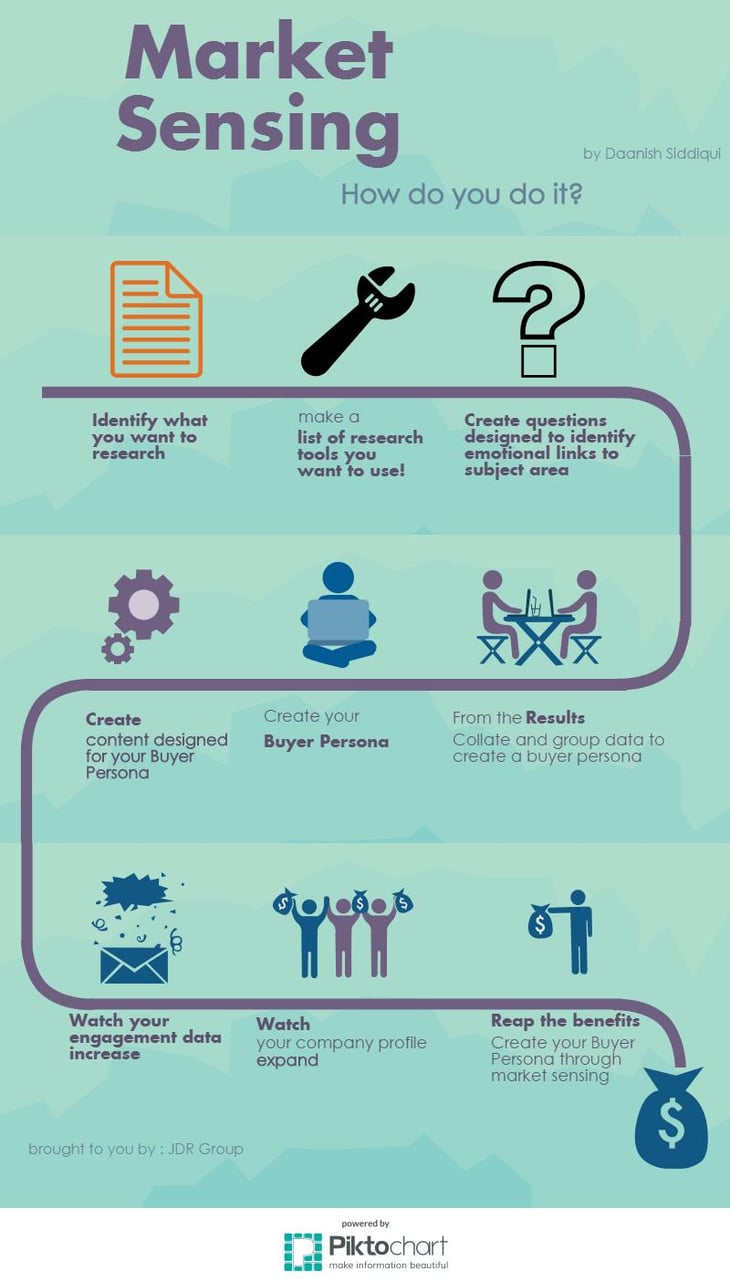What Is Market Sensing And How Can It Help You With Your Business?
The World We Live In:
We live in a ubiquitous culture where brands are constantly trying to engage with us through a variety of different mediums. From the evolution of print media in magazines and newspapers, through to the boom of social media content. Their has constantly been news and information that brands force on us.
However, this trend is beginning to die down. Marketers have evolved with the times. Using different approaches to attract attention like the the recent Christmas Sainsbury's adverts, linking the festive holiday with family and sharing. Combined with an emotional score and clever narration. Sainsbury's have yet again differentiated themselves from other super stores of produce. John Lewis have become notorious for using different emotive links to combine Christmas with aspirational desires. Coca Cola have always used Christmas to signify the importance of Santa Clause to children. The trend is emerging, creating emotive links to services and products has seen a shift in consumer awareness. This is all down to Market Sensing research data.
What is Market Sensing?
Market Sensing is a type of research technique that involves collecting qualitative data through a series of interviews, focus groups and in depth questionnaires designed to help management teams understand the external market in a more effective, efficient and emotive style. It can yield magnificent results as its main aim is to identify why consumers choose the brand and what are their feeling towards the business. An example of this would be that of Lush or Body Shop. Two equally engaging brands that have created a brand image of fairness, equality and sustainability.
Market sensing research would seek to understand why consumers choose these brands over conventional brands such as Boots. Does the brand mirror their beliefs towards fair trade and sustainability? Is price of soaps and hand wash's justified by the companies ethos of fair wage payments to those countries from which the materials spawned from? Marketing Lecturer and published writer Nigel Piercy has written articles, text books and journals about this innovative research method. He commented that the most important difference between market sensing and market research is that the former is more interested in the customers perspective versus the latter which focuses primarily on the companies perspective.

How can Market Sensing help your business?
Understanding what the customer really wants is key for any business to succeed in this economy. Creating content based on a buyer persona you and your management team have collaboratively discussed and created, is the first stage in the process of many to retain your roster of clients. If your marketing team can identify what emotive links your clients have with your brand, and then mirror this belief into the company ethos and development stage, you will see your business increasing in both awareness and involvement from other prospective clients.
If you need help with identifying your buyer personas, who to market towards or any questions on how you can improve your marketing department. Click Here.
If your market sensing data showed your customers wanted reward schemes in your chosen business. Developing this scheme as a result of the research will yield benefits as it shows to your customers that your organisation cares about their opinions. What differentiates this from regular marketing research, is that the data you collected showed an emotional link to reward schemes.
Market Sensing can also be used to identify your buyer personas. Research has shown those that create Buyer Personas from market sensing have yielded greater results than those who didn't. This is because the research is identifying deeper needs and desires from the clients. Therefore when products are created via the development stage, customers are more likely to become engaged with the new service as the product will mirror their core ethos.
So how do you perform market sensing research in a commercial research proposal.
- Ask questions that identify emotions to the brand in question
- Ask participant to explain why they choose these brands. Specifically what they feel towards their ethos, culture and principles
- Identify whether they are motivated by price or quality
- Group the data into categories, then assign these to buyer personas.
How can JDR Group help?
At JDR, we are dedicated to creating content for you. We have a variety of different blog posts, Ebooks and podcasts designed to help you to understand digital, traditional and contemporary marketing strategies that, when employed, will help you to improve your marketing department, your value proposition and your company brand image. For a full list of what free content you can sign up for, Click Here NOW!





